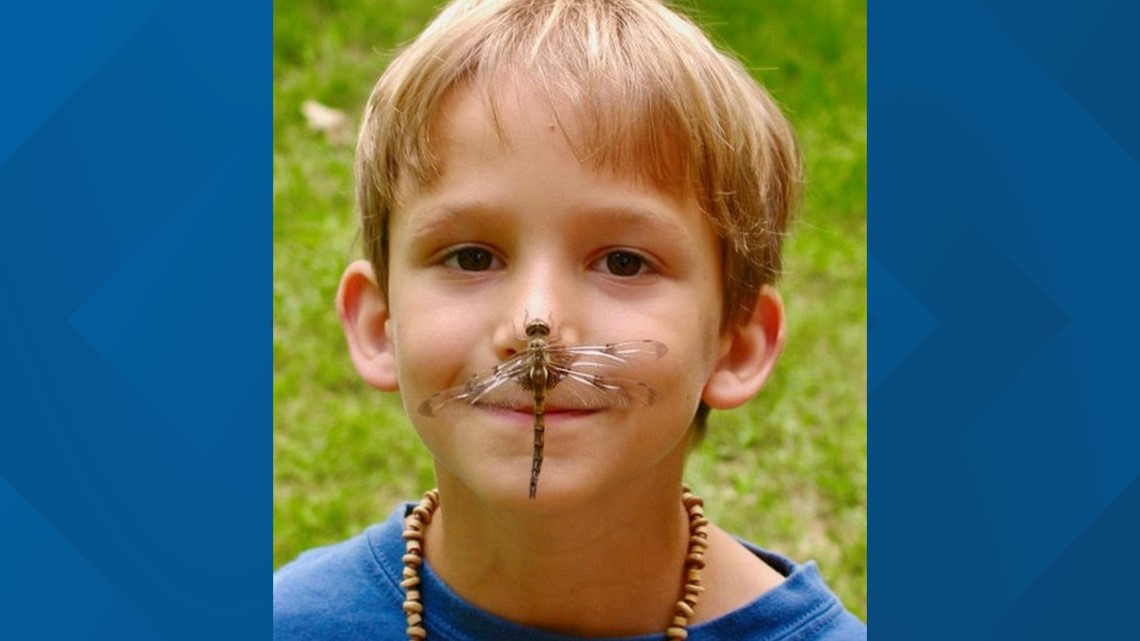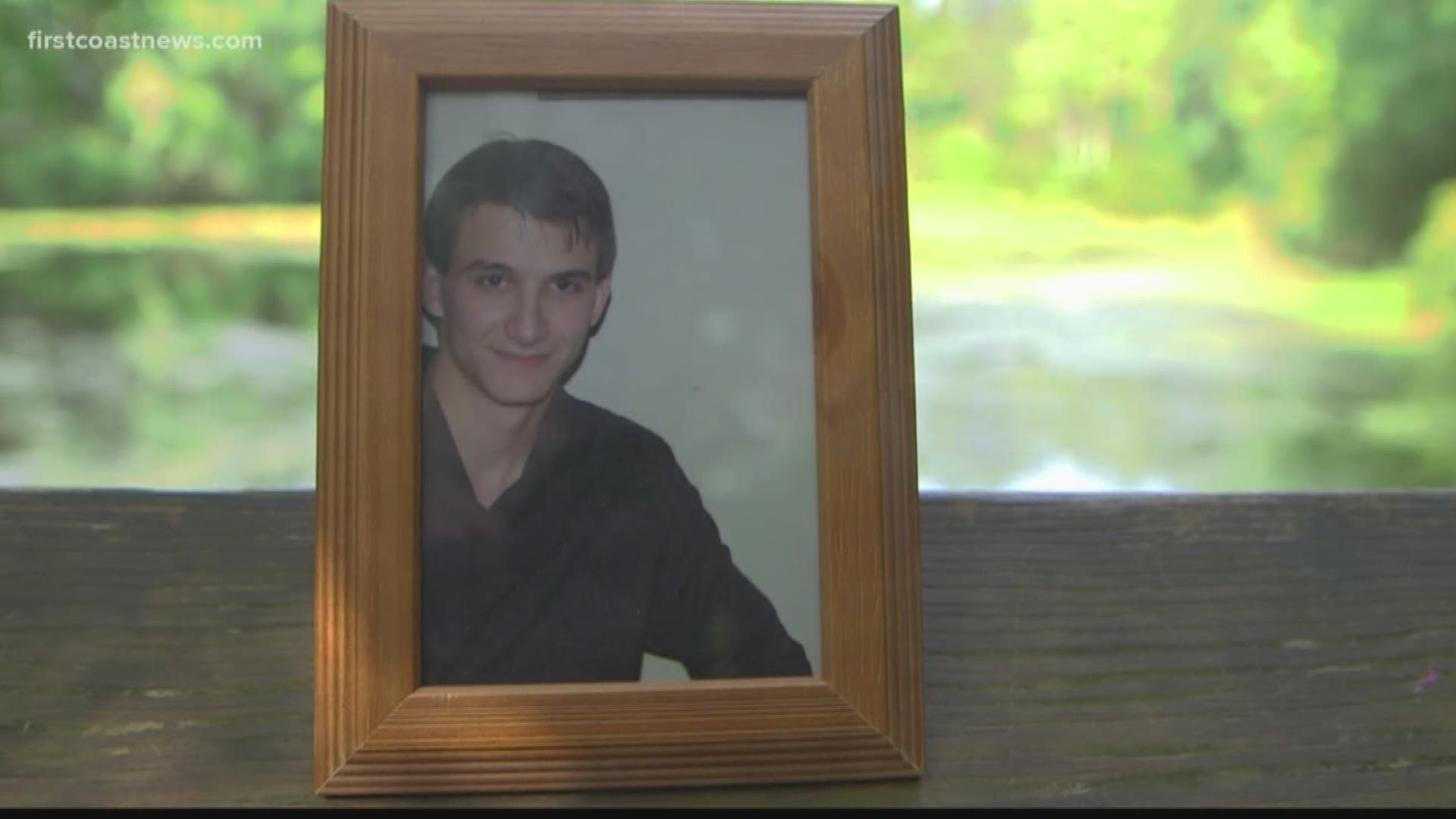JACKSONVILLE, Fla. — The most recent numbers, which were released in 2017, show that more than 47,000 people died in the U.S. after overdosing on opioids according to National Institute on Drug Abuse.
For Sheryl Johnson that number is personal, but her story isn’t about the opioid that ultimately led to her son’s death. It’s about breaking down the stigma associated with mental illness.
“I think about fentanyl and the opioid crisis and all of the attention we pay to the drugs,” Johnson said. “I always say we have to start at the beginning of the story.”
The beginning of the story for Johnson starts with a brown-eyed, blond-haired boy who loved engines and the outdoors. He was funny, quirky and brilliant as she describes him. He was her firstborn.


“He was my own personal encyclopedia and [a] walking, talking engine guy," she said. "Anything that had a motor [or had] to do with a bug was his thing.”
In high school, she noticed her son, Alex Newman, started to withdraw.
“He was diagnosed with depression and anxiety around the ninth grade and he went to counseling," Johnson said. "He finished school and got admitted to the University of Georgia and went off to school.”
She remembers the call he made to her his junior year of college.
“He called me and said basically, I’m a mess Mom, and I need your help and you need to come,” Johnson said.
Despite getting him in to see a psychiatrist he continued to struggle and eventually moved home.
“We never really got him back on solid ground,” she said. “He had a seizure at home and was ultimately diagnosed with generalized epilepsy. That started a whole series of complications with the depression and anxiety, and we never were able to help him get out of the depression and anxiety rut.”
She did everything she knew to help him, but the depression and anxiety were too much. She thinks he turned to an opioid to numb the pain.
“I can remember the moment when I got the phone call that he had been found and that he was gone like a movie," Johnson said. "Thinking my worst nightmare just happened and I didn't have enough time to help him.”
On August 12, 2017, just one week before his 23 birthday, Alex was found dead in his bed after overdosing on fentanyl.
“No parent should ever bury their child," she said. "It doesn't matter what disease they have, It's the wrong order of things. When we started to look back at what we wished we had done or should have done we realized most people had no idea what was going on with him or with us. It was really private. He was embarrassed so after he died we left it quiet also.”
A year later, as she sat at her son's grave, she decided it was time for her to break her silence and go public, sharing her and Alex's story on social media.
“He looked like everybody else," Johnson said. "He was just a kid. He wanted to not feel the way he felt. I always say he could have no more willed away his mental illness than he could have cured himself of cancer, but somehow we expected him to do that."
She launched Alex's Dragonfly Coalition, inspired by a picture of her son when a dragonfly landed on his nose. The coalition is aimed at changing the face of mental illness and breaking down the stigma. She created cards with dragonfly pins as part of her wear one, share one program.
“It has signs or symptoms to recognize when someone might be suffering from a mental health disorder," Johnson said. "We use the dragonfly word to give suggestions as to how to have a conversation and how to talk to someone about it.”
After her son passed away, she learned there were other resources no one ever told her about, resources like the National Alliance on Mental Illness or NAMI.
“One of the things I’m trying to do is create a collaboration or cooperative environment," she said. [That way] everyone is working together and there's a place to go that helps them find the help they need.”
Mental Health America ranks Florida 43rd in the nation when it comes to access to care.
“We've had stories where people have contacted their primary care physician to say they had a kid in crisis, and the primary care physician refers them to a psychiatrist who has a 90-day waiting list," Johnson said. "We wouldn't do that if someone was having a heart attack."
Her organization is now raising money to fund a new care coordinator at Baptist Behavioral Health to help young adults and their families get the help they need.
“Somebody, almost like a coach, to be able to help them navigate the complex medical system, psychologist Terrie Andrews, Ph.D., System Administrator for Baptist Behavioral Health said. "And also connect and give the information to the parents because in Alex’s case he was 18. He was older, an adult.”
She believes this new position will have a profound impact.
“We are trying to create a system of care and an approach that does give a safety net to these young adults,” Andrews said.
Johnson thinks it will help save lives.
“I think if we had a navigator our outcome could have been different,” Johnson said. “It’s a complicated illness. It's a lifetime illness. It has no certain treatment plan and it has no cure, so it's complicated for people who are wading into it.”
She has a message for anyone struggling with mental illness.
“You’re okay, it's not your fault,” Johnson said. “If your doctor told you [that you] have cancer or if your child or loved one fell down and you didn’t know if they had a broken or sprained leg you would go get help. Getting help would tell you if you needed a cast or needed to ice it. We have to start looking at it that way, and there are resources out there and people who care and getting help early on and part of the key to having a successful treatment plan.”
In Northeast Florida, a free 8-hour training course is offered to the public called Mental Health First Aid. Just enter your zip code here to find a class near you.
To learn more about Alex’s Dragonfly Coalition click here.
Other organizations offering free and low cost mental health services include:
National Alliance on Mental Health, NAMI Jacksonville, Help Line: 904-724-7782
Jewish Family and Community Services, JFCS 904-394-5706

